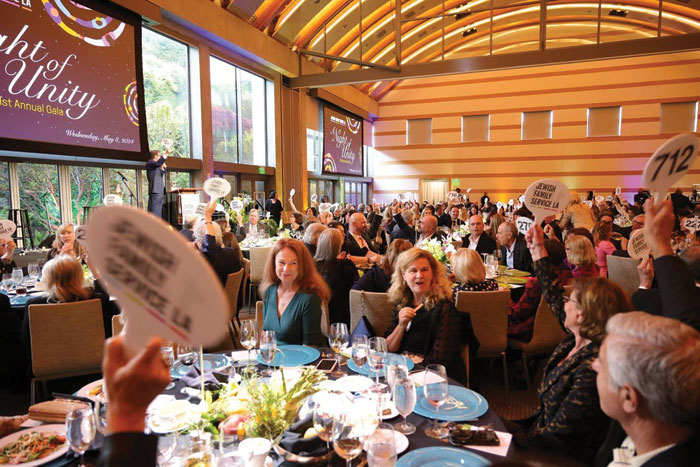As Jewish private school seniors prepare for graduation and commencing college in the fall, we face our greatest and most nightmarish challenge of all.
No, I’m not talking about AP exams and finals; as seasoned AP biology, AP English and honors scholars, we will tackle those with ease.
What frightens us most is the looming specter of untended piles of dirty laundry, soon to take up what little floor space is available in our future freshman dorm rooms.
Yes, to many academically advanced Jewish private school students, the delicate art of doing the laundry represents a mind-boggling proposition. Too many of us are simply stupefied by the provocative challenge of sewing on a button and anxiety-ridden over the physical adroitness required of using the dishwasher.
My school has trained us for the academic rigors of a university. However, it has failed in preparing us for the necessities of the real world, or what my grandmother calls the “nuts and bolts of life.” We aren’t alone. Today, this lack of practical skills among high school seniors is an epidemic. Web sites across the Internet list instructions for college students on everything from how to use a dishwasher to balancing a checkbook.
As more educated scholars ponder the philosophical questions of the world at the greatest universities, fewer and fewer students know how to just separate their darks and whites.
Perhaps this domestic ignorance is one of the negative results of Western feminism and our elitist, prep-school educational system in general. In previous generations, male students were required to take wood shop and auto-repair courses, while their female counterparts were required to engage in cooking and sewing classes. But as the 1970s unraveled and women admirably yanked off their bras and screamed for equality, one consequence was the neglected kitchen. The career-oriented world looked down upon housewives, and girls were just … too politically empowered for cooking.
This year, Milken High, which I attend, added a vital mandatory senior seminar on Israel and the Middle East. But how can we be asked to iron out the horribly divisive questions of the Middle East, when we can’t even iron our own shirts?
It is written in Baba Metzia that we must first help our household, then our community and then the world. Well, before we spend our days crusading against pollution to fulfill community service hours, perhaps we should take a couple of minutes to examine our own not-so lovely hygienic habits.
To illustrate, simply inspect my student lounge.
Domestic gods and goddesses we are not.
As we of the class of 2004 leave behind a legacy of hard-working student government leaders, newspaper editors, calculus experts and econ gurus, we humbly advise that Jewish private schools provide their students an opportunity to excel not only in the classroom, but in life by offering — even mandating — a home economics class.
Indeed, in this brave new world of 2004, high school graduates are not plagued by nightmares of failing a final, rather, we wake up dreading the Sisyphus-like fate of forever pressing the small buttons on the ugly brown microwave, stymied by the thought of actually planning, preparing and cooking a six-course Shabbat dinner, let alone changing a flat tire without calling the Auto Club.
Michele Goldman is a writer, pianist and graduating senior at Milken Community High School.





















 More news and opinions than at a Shabbat dinner, right in your inbox.
More news and opinions than at a Shabbat dinner, right in your inbox.